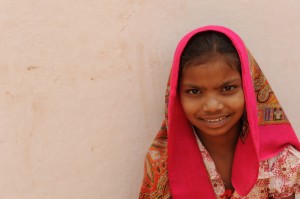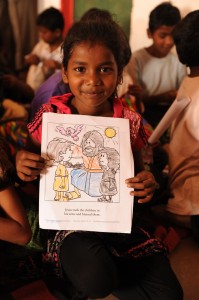 As I have experienced various cultures and have engaged them with a desire to share the gospel, I have come to realize that most things in life are not “black and white.†What should be easy is complicated and convoluted by sin and the fall of man. The pastors that we seek to partner with are not perfect and have flaws, and the churches we want to support are filled with sinful and corrupt people. Even various personalities and the quirks of missionaries create communication and planning issues. It is a miracle that the gospel has spread to the vast places and tribal regions that it has so far.
As I have experienced various cultures and have engaged them with a desire to share the gospel, I have come to realize that most things in life are not “black and white.†What should be easy is complicated and convoluted by sin and the fall of man. The pastors that we seek to partner with are not perfect and have flaws, and the churches we want to support are filled with sinful and corrupt people. Even various personalities and the quirks of missionaries create communication and planning issues. It is a miracle that the gospel has spread to the vast places and tribal regions that it has so far.
Yet in spite of all of our flaws, sinful and corrupt natures, God still desires to use His people to spread the good news of Jesus Christ to the world. Our own sin becomes hidden from our sight and even the culture that we live in becomes blind to it. So it is through immersion in another culture that you can easily see their sin, flaws, and areas that need improvement. But they also see yours, and if you are blessed you will be able to identify it yourself and be able to change it through the power of the Holy Spirit.
We must enter into missions with this understanding that we are not perfect, the people we partner with are not perfect, and surly those that have not yet hard the gospel are not perfect. We encounter Christians around the globe that are on a journey just like we are, yet are flawed just as we are flawed. With the greater good balanced with the fall of man in mind, we seek to be wise in the use of our resources, and through prayer we seek the face of God and His direction as to what we should do and where.
Therefore, when we partner with a ministry in various parts of the world, and even in our own “village,†we must have accountability. This does not mean that we do not trust men and women of God, but that we mutually understand that both parties are redeemed yet sinful. We do them a loving service so that they are less likely to be tempted to misuse resources and even have to plan out how and when it will be spent. There must be an accounting of monies spent, and how it is to be used. With communication and accountability trust will be developed.
Also with accountability people are more likely to support the need. If a well is needed at an orphanage, monies can be given for that purpose, but along the way there should communication as to the need, expected cost, who will dig the well, and evidence of completed work. When this chain of events happens, there is a much higher likelihood that future projects can the planned (like a dormitory expansion, walls around the compound, etc.) However, if this does not happen then we are left with innocuous questions like, “was the well even dug?†“Was the money used for something else?†“is the ministry ok?â€
 But because there is no communication or “shady†decisions are discovered then our minds may even drift toward accusative questions like, “was the money used for the administrator’s personal gain?â€Â When missional relationships get to this point, they often do not last. If they do, it is with an attitude of desiring to help children, orphans, lepers, etc., at the expense of dealing with a potentially corrupt system and ministry is greatly restricted. If we could get both parties to understand that because we ask for accountability (and that this does not mean that we question their integrity) it is for the purpose of being able to do greater ministry together. When we hold each other accountable, gently and lovingly correct each other, then various cultures can help the other grow in grace and the kingdom can be expanded.
But because there is no communication or “shady†decisions are discovered then our minds may even drift toward accusative questions like, “was the money used for the administrator’s personal gain?â€Â When missional relationships get to this point, they often do not last. If they do, it is with an attitude of desiring to help children, orphans, lepers, etc., at the expense of dealing with a potentially corrupt system and ministry is greatly restricted. If we could get both parties to understand that because we ask for accountability (and that this does not mean that we question their integrity) it is for the purpose of being able to do greater ministry together. When we hold each other accountable, gently and lovingly correct each other, then various cultures can help the other grow in grace and the kingdom can be expanded.
Proverbs 27:17 “Iron sharpens iron, and one man sharpens another.â€
There may be a time when communication is so broken, schemes have simply gone too far, and trust and accountability has degraded to the point that relationships must be severed. When this happens, it is sad because the ones who suffer most are those who need Christ’s love most (and typically they are children).